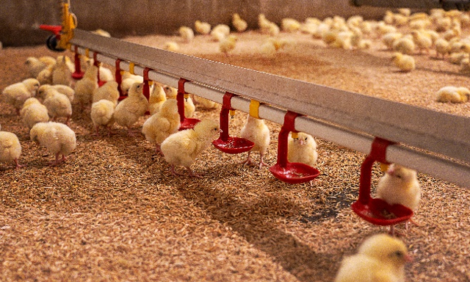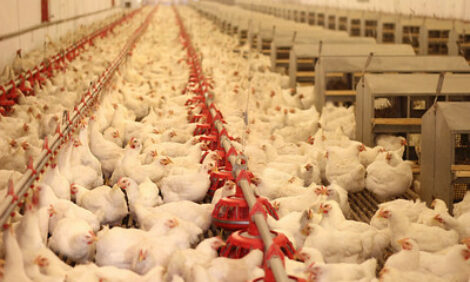



Insect control on poultry
Prepared by Lee Townsend, Extension Entomologist, University of Kentucky - A report on fly control for the poultry industry. Successful fly control is accomplished through the integration of nonchemical and chemical control methods. Reliance on the use of insecticides alone seldom results in satisfactory fly control. Sanitation and manure management is very important.
Ideally, manure should be removed at least twice each week to remove fly breeding materials. Spread manure thinly with a flail-type spreader to allow drying and to prevent the completion of fly development in the field. At least 450 flies can breed in one pound of manure which is why thorough cleanup is essential.
If manure is allowed to build up, moisture control is essential to insure that it dries rapidly. Proper ventilation, temperature control, cutting of grass and weeds around buildings and use of fans to increase air movement over droppings will enhance drying. Keep waterers from leaking, cull birds that habitually produce very loose manure, remove broken eggs and dead birds and reduce feed spillage to improve fly control.
Proper use of screening on all doors and windows will keep flies out of egg rooms and offices. Air curtains and properly positioned fly electrocuter traps are also useful in preventing flies from entering buildings.
To view the full report, please click here
Source: University of Kentucky - Cooperative Extension Service February - 2003









